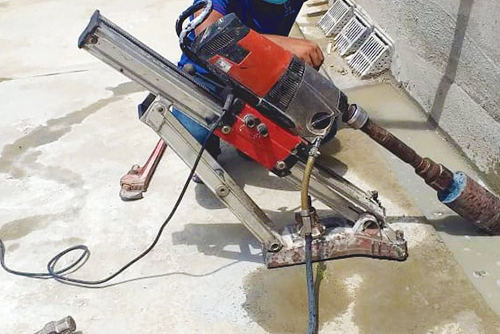
Core sample testing involves extracting cylindrical specimens, known as core samples, from concrete structures or pavements for analysis and testing. These samples are obtained using concrete core drilling techniques to gather representative sections of the concrete for evaluation.
Once extracted, these core samples undergo various tests to assess the properties and quality of the concrete. Some common tests performed on core samples include:
Compressive Strength Testing: This test determines the maximum compressive load a concrete sample can bear before failure, providing insight into the concrete’s structural capacity.
Density and Porosity Analysis: Assessing the density and porosity helps evaluate the concrete’s durability and resistance to environmental factors like water penetration and freeze-thaw cycles.
Chemical Analysis: Testing for chemical properties, such as chloride content or alkali-silica reaction, is crucial for understanding potential causes of deterioration and assessing the concrete’s long-term stability.
Carbonation test: Examining the core samples are subjected to what depth of carbonization occurred.